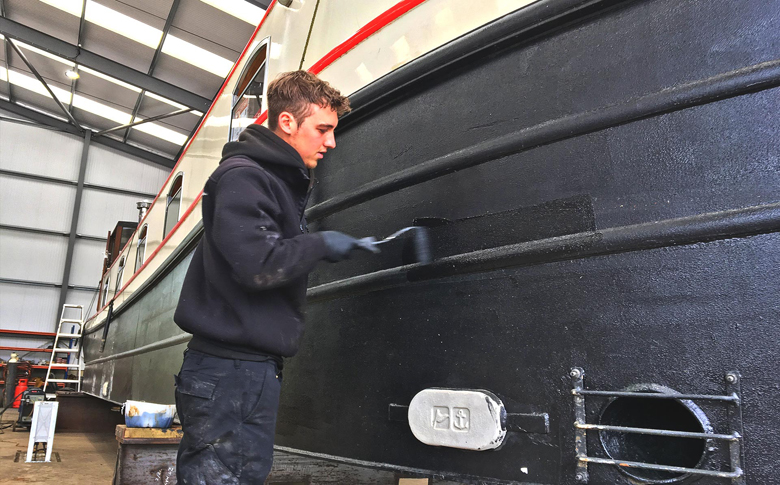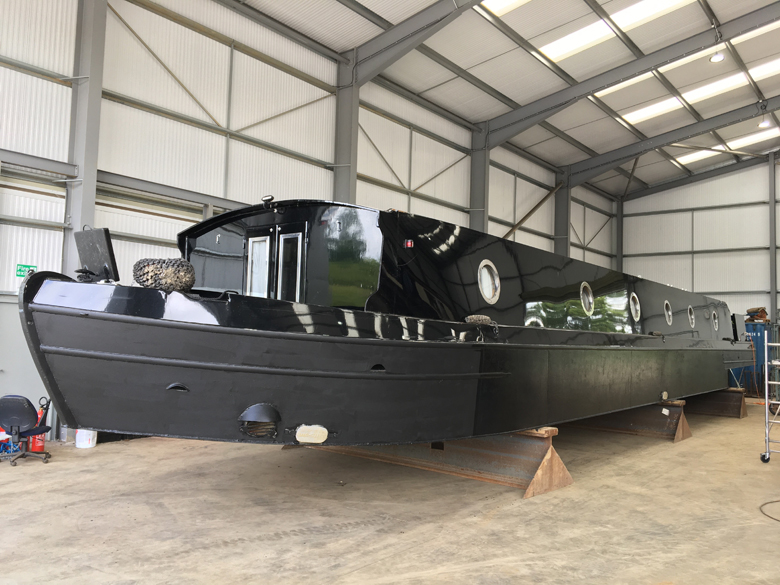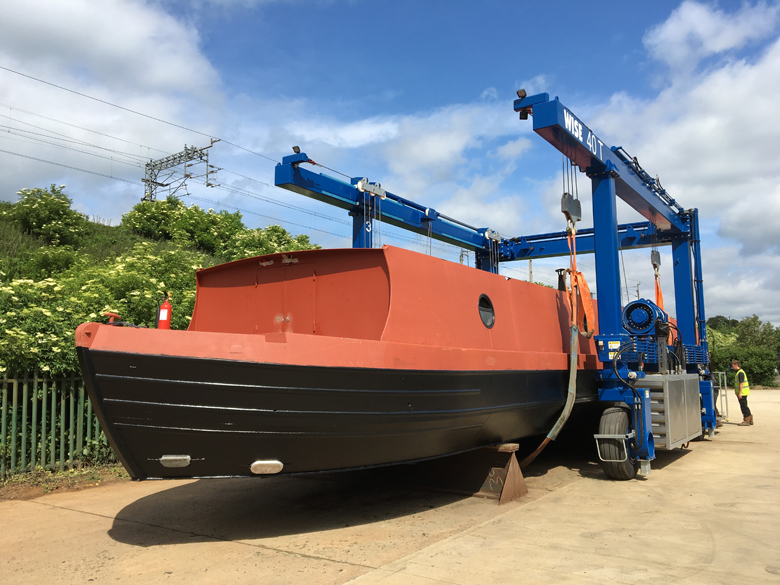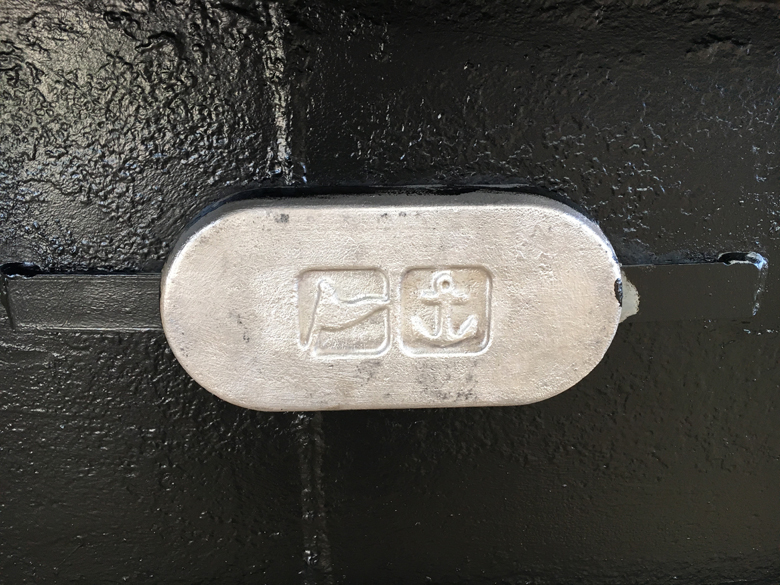What is Blacking?
The hull is blacked to protect the bottom section of the boat, so specifically the area of the boat
that is in the water and just above the water line. The “blacking” process protects the hull from rust, pitting,
rubbing (through locks, other boats, banks etc) and generally extends the life of the hull.
Blacking your boat is an essential part of boat maintenance and should be undertaken every few years. There are two types of coatings that can be used to black the hull, Bituminous and Two Pack Epoxy. Epoxy paint is more expensive but it will last 5 – 6 years once applied and a Bitumen finished coating will last around 2 – 3 years.
NOTE: You cannot apply two pack to a boat that has been blacked with bitumen previously
Blacking your narrow boat or widebeamed boat can be quite time consuming and something that you may not want to do yourself. We have excellent undercover facilities on site and are happy to undertake blackings on narrowboats and widebeamed boats.

Blacking Process Explained
The blacking process takes three days.
Day One; The Boat taken out of the water and pressure washed to remove the old blacking and debris like weeds, mud, and rust. This prepares the hull for the new application.
Day Two; The hull is now ready for blacking and this has to be done manually with a small roller, the reason behind this slow manual process is the blacking goes hard very quickly so it has to be applied in small sections.

Day Three; Repeat day two. The second coat gets applied.


Book your blacking slot
Call us on 01327842577 or email us at sales@whiltonmarina.co.uk to book your blacking slot!
A 50% deposit of the cost of the work to be undertaken will be charged in advance with the full balance payable on the day of completion.
Blacking Charges
Anodes
Otherwise known as sacrificial anodes. They are a large piece of magnesium often welded under the waterline at the front and rear of a narrowboat hull, which protects the hull from corrosion due to electrolysis. Anodes form a key part in the boat’s battle against corrosion. Put simply, they have a higher electrochemical value than steel, which means they corrode away faster.
An inspection of the anodes is recommended when the boat is out of the water for blacking.
Once we have pressure washed the boat we can check the anodes for wear and replace as required with new ones.
Charges for new Anodes: 1 = £100 INC VAT, 4 = £400 INC VAT, 6 = £600 INC VAT

Blacking Services Gallery